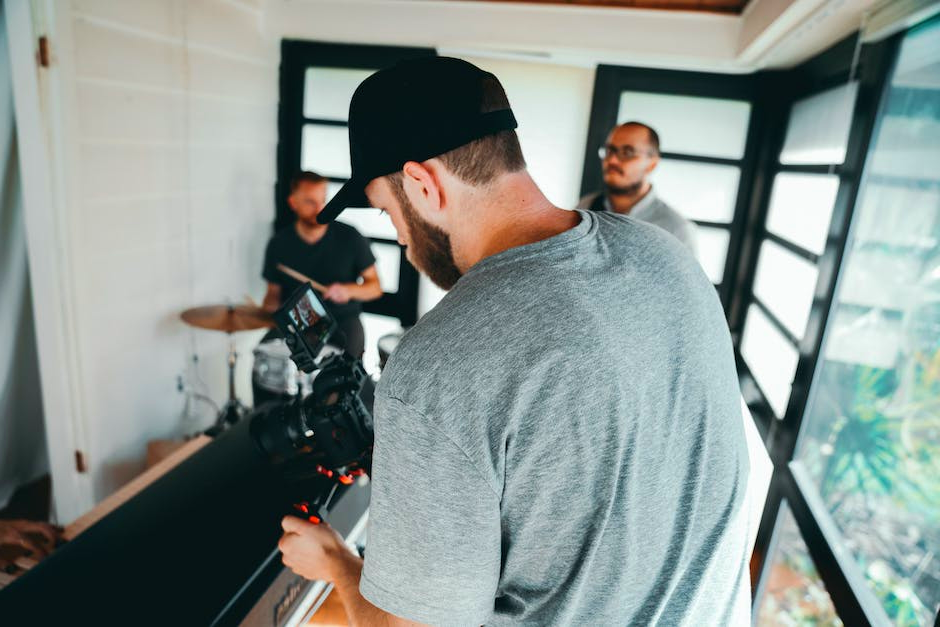The world of music production evolves quickly. **AI** emerges as a rich tool for composers and producers. _AI-powered music generators_ change how music is made. They allow folks without classical training to take part. Numerous tools are available, each providing easy access to music creation with **sophisticated algorithms**. Each tool has unique features to meet the diverse needs of today’s music enthusiasts.
We understand the importance of finding the right tool to aid in the creative process. AI music generators vary in their approach—from those utilizing pre-recorded samples to generate tracks to those offering granular customization for more experienced users. With options for personalized music creation and access to AI-generated track marketplaces, these tools are not just for creating background music or producing royalty-free tracks—they are powerful assets that can inspire and shape the music of tomorrow.
In evaluating the best AI music generators available, we consider factors such as user-friendliness, feature set, pricing, and the quality of the output. Whether it’s custom filters to select the mood and genre, or the ability to create music based on generation profiles, these generators offer an exciting peek into the future of music production, empowering us to create with efficiency and at a fraction of the traditional cost.
Overview of AI Music Generation
AI music generation is revolutionizing how we create and interact with music, leveraging advanced algorithms to compose original pieces across various genres.
Evolution of AI in Music
In the realm of artificial intelligence and music, we have witnessed swift progress. Initially, simple algorithms could produce basic rhythms and melodies. Presently, sophisticated AI systems, like Mubert and Amper Music, utilize deep learning to craft complex compositions that push the boundaries of traditional music production. This evolution marks a significant leap from AI’s rudimentary beginnings to becoming a tool that can operate with minimal human input.
Types of AI Music Generators
AI music generators can be categorized primarily based on their mode of operation:
-
Template-Based Generators:
- These employ predefined musical structures.
- Users can often customize the music using templates.
-
Algorithm-Driven Generators:
- These create music using unique algorithms without relying on templates.
- Examples include Boomy and Amper Music, which are prized for their user-friendly interfaces and ability to generate music with minimal user input.
Each type serves different user needs, from those seeking quick musical sketches to professionals desiring in-depth composition tools.
Key Features of Top AI Music Generators
In our analysis of today’s market-leading AI music generators, we focus on three critical attributes: the fidelity of the generated audio, the user interface design, and the diversity of musical genres they can simulate.
Audio Quality and Realism
High-quality, realistic audio is paramount in AI music generators. The best tools produce tracks indistinguishable from those composed by humans. For instance, certain AI platforms boast libraries with over 200,000 samples, enabling the creation of fresh and authentic music. Advanced deep learning algorithms are trained across various music genres, enhancing the realism of the audio output.
Interface and Ease of Use
An intuitive and user-friendly interface significantly enhances the music creation experience. Ideal AI music generators have a low learning curve and do not necessitate extensive knowledge of music theory. Features such as template-based creation and drag-and-drop functionalities further simplify the process for users, allowing both novices and professionals to efficiently navigate the platform and produce quality music quickly.
Genre Versatility
The ability to generate music across a broad spectrum of genres is a key feature of top-tier AI music generators. Some services offer an extensive range of genre selections, from classical to contemporary pop, ensuring that users can generate tracks that cater to their specific project needs. Customization options—like adjusting vocals, sound effects, and preset controls—are also crucial for tailoring the music to the desired genre.
Popular AI Music Generation Platforms
In the realm of AI music generation, there exists a diverse selection of platforms tailored to meet the needs of hobbyists, professionals, and businesses alike. We observe a clear distinction between open source solutions, fostering community-driven innovation, and commercial platforms, which often lead with advanced features and dedicated support.
Open Source Solutions
- Magenta by Google: Built on TensorFlow, Magenta is designed to create new audio and video content using machine learning. Users can experiment with music generation through its pre-trained models or even develop their own.
- OpenAI’s MuseNet: This deep neural network is capable of generating 4-minute musical compositions with 10 different instruments and can combine styles from country to Mozart to the Beatles.
Commercial Platforms
-
Amper Music: Focusing on ease of use, Amper allows for quick music creation from pre-recorded samples without the necessity for deep musical knowledge.
- Pricing: Custom, contact for details
- Standout Features: Template-based creation, no music theory required
-
Mubert: Appropriate for personalized music creation, Mubert offers an AI-generated track marketplace for diverse needs.
- Pricing: $11.69 per month
- Standout Features: Personalized music streams, community of contributors
-
AIVA: Known for handling a variety of generation profiles, AIVA is adept at evolving user-fed data into new compositions.
- Pricing: Custom, contact for details
- Standout Features: Flexible generation profiles, broad style range
These platforms are at the forefront of AI-generated music, each with unique features that cater to varying requirements and skill levels. Whether you’re seeking an open source tool to tinker with or a full-fledged commercial service for a robust music production experience, the current landscape offers a rich suite of options to explore.
Creative Applications of AI Music Generators
AI music generators have revolutionized the way we approach audio production. By leveraging technology, these tools enable us to craft soundscapes with precision and adaptability, catering to a variety of creative industries.
Film and Video Game Scoring
-
Film Scoring: AI music generators provide filmmakers with a vast library of sounds and motifs. We can quickly prototype thematic music that aligns with the emotional tone of a scene. For instance, Mubert offers personalized music creation capabilities, facilitating filmmakers to experiment with different moods and styles without the constraints of traditional composition methods.
-
Video Game Scoring: In the gaming industry, adaptive music is key. AI allows us to create dynamic scores that respond to player actions and in-game events, enhancing the immersive experience. Open-source platforms such as Jukebox can generate genre-specific tracks that can be tailored to fit various gaming environments, from calm landscapes to intense battle scenes.
Assisting Music Composition
-
Idea Generation: AI generators can spark creativity by proposing unique melodies and harmonies, serving as a starting point for further development. We can use AI to overcome writer’s block and explore new musical directions.
-
Production Efficiency: These tools streamline the music creation process by automating certain aspects of composition and arrangement. For example, with tools like Amper Music, we can generate music using pre-recorded samples, significantly reducing the time and knowledge required to produce quality tracks.
Considerations for Choosing an AI Music Generator
When selecting an AI music generator, it’s crucial for us to focus on both cost effectiveness and the level of control we have over the music creation process.
Cost and Accessibility
- Cost: We must carefully weigh the price, as AI music generators can range from free to a substantial monthly fee. The one that fits our budget while still meeting our needs is the ideal choice.
- Example: Mubert offers a subscription at $11.69 per month, whereas Soundful offers services at a lower price point of $2.5 per month.
- Accessibility: Consider how easily accessible the platform is. Is it user-friendly or does it require technical knowledge? We must ensure the software can be easily integrated into our workflow without a steep learning curve.
Customizability and Control
-
Customizability: It’s essential for us to look for a generator that allows us to fine-tune music according to our specific requirements. The ability to adjust various elements like genre, tempo, and instrumentation is key.
- Example: Soundful emphasizes template-based music creation, which might provide a blend of usability and customizability.
-
Control: We should seek out AI music generators that grant us granular control, letting us manipulate individual tracks or sounds. This degree of control is particularly important if we want to separate or modify components like vocals, drums, or bass.
Frequently Asked Questions
In this section, we address some common inquiries about AI music generators, ranging from cost to customization, helping you navigate the choices and features of these innovative tools.
What are the top artificial intelligence tools for creating music?
Our research highlights Mubert and Soundful as leading AI music generators. Mubert offers granular music customization, while Soundful provides a template-based music creation approach with an affordable monthly subscription.
How does AI music generation work, and what makes one tool the best?
AI music generation involves machine learning algorithms that analyze music patterns and structures to create new compositions. The best tool typically stands out due to its advanced AI capabilities, user-friendly interface, and the ability to produce a diverse range of music styles efficiently.
Can you find AI-powered music generators that are accessible at no cost?
Yes, there are several AI music generators available for free, offering basic features that allow newcomers to experiment with AI-driven music creation without any financial commitment.
Are there AI music generators that allow you to incorporate your own vocals?
Some AI music generators provide features that enable users to add their own vocals to the AI-generated compositions, allowing for a higher degree of personalization and creativity in the music production process.
Which AI song generator can produce music based on specific artists or genres?
AI song generators like SOUNDRAW are designed to generate unique music by learning from various artists and genres. Users can input their preferences to tailor the AI’s output to their desired artistic style.
How can text be converted into music using AI music generators?
AI music generators are equipped with text-to-music features where users input text and the AI interprets it to create a corresponding musical piece, often requiring users to select mood, genre, and desired song length to guide the creation process.





